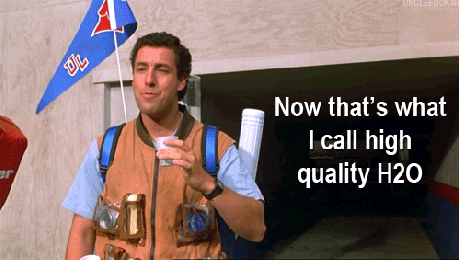Heat pumps are an excellent choice if you want to maximize efficiency in your home. A heat pump is a special type of HVAC unit that uses refrigerant to move hot and cold air throughout your home.

A heat pump can pump cool air into your home in the summer, and then be reversed in the winter to heat the interior of your home.
Heat pumps are very efficient and mechanically simple, making them very popular for mini split HVAC installations.
But you may have heard that there are no heat pumps that work below freezing.
How cold will heat pumps work, and does it make sense to get a heat pump in an area with cold winter, such as Bethlehem, PA? Find out now!
Why Do Heat Pumps Work Less Effectively When It’s Extremely Cold?
To understand why a heat pump doesn’t work as well in the cold, it’s important to understand how a heat pump functions.
Essentially, a heat pump uses a “refrigerant” to transfer heat from inside your home to the outdoors – and vice versa.
When it’s hot in your home, the refrigerant in the heat pump absorbs the heat, and vents it outside. The hot refrigerant is then expanded, which cools it down significantly. Then, a fan blows over this cool refrigerant, pumping cool air back into your home.
In the winter, this process is reversed. The heat pump can absorb heat from the outside air – even when it’s quite cold! Then, the hot refrigerant from the outdoors is pumped into your home, and a fan blows across it to provide heat to the inside of your home.
The refrigerant cools off again, and is pumped back outside to be heated once again.
Even in very cold weather, there is enough heat outside for your heat pump to absorb it and continue heating the inside of your home.
https://youtu.be/wzqTWv8zGlMHowever, this is only true to a certain extent – when temperatures get very cold, there may simply not be enough ambient heat to keep the pump running efficiently.
If you have a heat pump and your thermostat is not reaching a set temperature heat when it’s very cold outside, this is likely what is happening. It may be so cold that your heat pump is not operating efficiently.
This is why, traditionally, heat pumps are only recommended for climates where the temperature rarely dips below freezing during the winter. They are not as effective when it’s very cold, in most cases.
However, most heat pumps can be modified with electric “heating strips.” When switched on, these strips provide an extra source of heat for the pump, allowing it to work efficiently at any temperature - this could add more money to your power bill.
What Temperature Is A Heat Pump Not Effective? It Depends on Your Heat Pump!
How cold will a heat pump work? That’s a great question, and it mostly depends on the model of your heat pump. Most standard heat pumps will function at 100% efficiency until the outside temperature reaches about 40° F.
However, when the temperature dips below this, most heat pumps are not able to maintain efficiency. They become much less effective at temperatures between 20° F to 30° F. At lower temperatures, the heat pump will use a lot more energy and will not heat your home as efficiently.
Brands like Mitsubishi are perfecting the efficiency below 30° - ask us about these systems when looking for a new HVAC system install quote.
There are a few stereotypes to heating installation, but this is an exception when it comes to how cold heat pumps will work, though. There are some heat pumps that will work below freezing. For example, there are Mitsubishi H2i heat pumps, which use Hyper-Heat INVERTER technology.
Using a powerful pump unit and a special “flash injection” circuit that injects more refrigerant into the system, these Mitsubishi heat pumps deliver up to 76% efficiency at outdoor temperatures as low as -13° F, and 100% efficiency at temperatures between 0° F and 5° F. In contrast, most conventional heat pumps won’t work at all at temperatures that are this low.
In addition, this system is a ductless “mini-split” system, so it does not require costly ductwork throughout your home. If you’re interested in replacing your HVAC system with an efficient and simple heat pump – or you want to retrofit an older building that doesn’t have room for ducted HVAC – Mitsubishi heat pump products are a great option.
Need Heat Pump Installation or Repairs In Bethlehem, PA? We’re Here to Help!
Whether you want to install a new heat pump like a Mitsubishi H2i in Bethlehem, PA, or you live in the area and have been Googling “heat pump repair near me,” Deluxe Plumbing & Heating is here to help.
We carry and install high-quality Mitsubishi heat pumps that work in even sub-zero temperatures, and we can service and repair all makes & models of heat pumps in Bethlehem.
If you’re having issues with your heat pump during cold temperatures, we can repair your unit and even modify it with electric heating strips to keep it functioning all-year-round. To learn more about our heat pump installation and repair services in Bethlehem, PA, just contact us online or give us a call at 610-628-1724.
source https://www.deluxeplumbing.com/post/what-temperature-is-a-heat-pump-not-effective-how-cold-will-a-heat-pump-work














